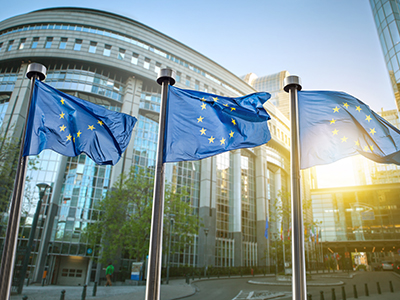
As Trade Secrets Watch has previously reported, new rules regarding the protection of trade secrets are on the horizon for the European Union. In November 2013, the European Commission announced a proposed Directive on trade secrets and confidential information. Around six months later, in May 2014, the Council of the European Union agreed on a revised draft Directive. Reception of the Trade Secrets Directive has been mixed.
The current state of European Union trade secret protection is a patchwork of separate national laws. In addition, the remedies that are provided are inconsistent across different jurisdictions. Even more problematic is the fact that some member states’ laws don’t even provide a legal definition of what a “trade secret” is. Facilitating business relationships across member states can be a minefield for companies and individuals who want to ensure their trade secret information is protected. The Directive harmonizes the definition of “trade secret” with standards used internationally, as well as providing a clear and uniform framework for companies and creators to operate in as they conduct business in the European Union.
However, not everyone believes that the Trade Secrets Directive is a step in the right direction. Public health groups that monitor policy-making, health promotion and policy developments argue that the Directive may allow companies to circumvent transparency, even when an issue of public health is at stake. The European Public Health Alliance expressed concern that trade secret protection could be invoked by companies in the health, environment, and food safety fields to hide information about products that could be harmful to human health or the environment. For example, a pharmaceutical company may argue that its clinical development process is a trade secret, but the information on biomedical research could be important to protect patient safety. Alternatively, a company that manufactures cleaning products could withhold product information based on trade secrets, but the products could contain hazardous ingredients.
Yet another argument some public health groups make is that international science projects could be impeded without open research and innovation. While this may be true in specific instances, such as the Human Genome Project, which was designed as a collaborative biological project, trade secret laws may not necessarily impede research and innovation in all circumstances. For example, in the United States, trade secret laws have not had this effect. In fact, many U.S. corporations have brought their competitors into court in patent trials, arguing that the ability to keep their trade secrets, well, secret is crucial to continuing to develop their products.
Joining the criticism of the Trade Secrets Directive are NGOs and journalists’ associations that worry the Directive could significantly limit freedom of information and the ability to conduct investigative journalism. Groups such as the European Federation of Journalists, the Association of European Journalists, and the International Consortium of Investigative Journalists have all joined in the opposition to the Directive. Of particular concern is the broad definition of “trade secrets.” These groups fear that the new rules will impede journalists’ ability to research and report on investigations. The timing of the proposed Directive is also concerning: the recent financial scandals LuxLeaks and SwissLeaks which brought to light tax rulings in Luxembourg and Switzerland, respectively, that provided multinational companies tax advantages, were possible because journalists could disclose sensitive company information.
Recently, on June 16, 2015, the European Parliament legal affairs committee approved the draft rules by a vote of 19-2 (with 3 abstentions). The report was prepared by Constance Le Grip, a French MEP, who stated that the legislation would “provide better protection for innovation, competitiveness and employment in Europe.” Le Grip went on to state that, “[a]t the same time, we have substantially amended and improved the initial text since it is all the more crucial to protect fundamental freedoms” such as the freedom of information and workers’ professional mobility.
The draft rules include a definition of a trade secret, which provides much-needed consistency across the European Union member states. A trade secret is defined as confidential business information that:
- is not generally known,
- has commercial value because it is secret, and
- has been subject to reasonable steps to keep it secret.
The committee balanced the need of companies to have protection against trade secret misappropriation with recognition that journalists need the ability to provide information to the public. The draft rules, as amended by the legal affairs committee, provide that victims of trade secret misappropriation will not have a remedy if a trade secret was acquired, used or disclosed for the following purposes:
- to make legitimate use of the right to freedom of expression and information (including media freedom),
- to reveal misconduct, wrongdoing, fraud, or illegal activity, provided the party disclosing the trade secret acted in the public interest, or
- to protect the general public interest or other legitimate interest.
The MEPs also added a few provisions to the draft rules, including: a provision that states the legislation should not affect the freedom of the media, and a clause stating that the rules do not affect the disclosure of business-related information by EU institutions and national public authorities, so as to promote transparency. Additionally, the committee amended the rules to ensure that they do not affect the use of trade secrets honestly acquired by employees in their normal course of employment, which means the draft rules will not create any unjustified barriers to workers’ mobility.
In terms of next steps, the legal affairs committee approved a mandate to start informal talks with the Council. The goal of these talks would be to reach a first-reading agreement. In whatever form the eventual Trade Secrets Directive is passed, member states will then need to implement the Directive into national law. The implementation will likely be an individualized process for each member state, so this is an area of European law ripe for new developments. Stay tuned!

